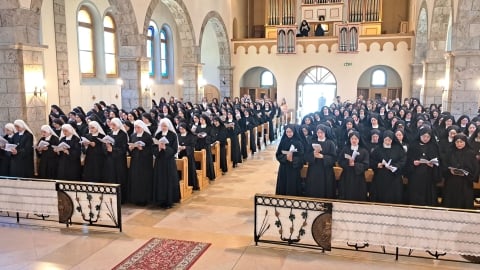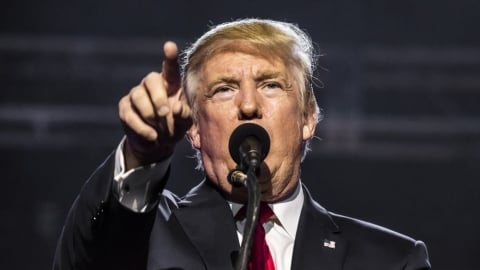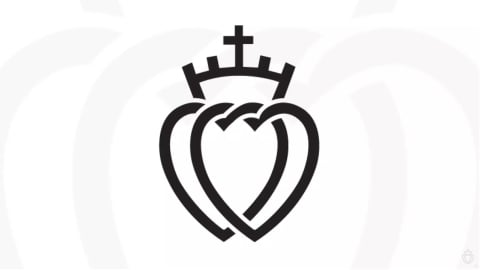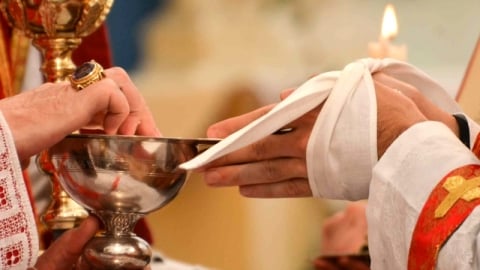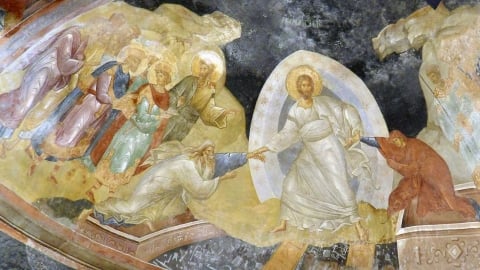Francis: Eucharist for Lutherans?
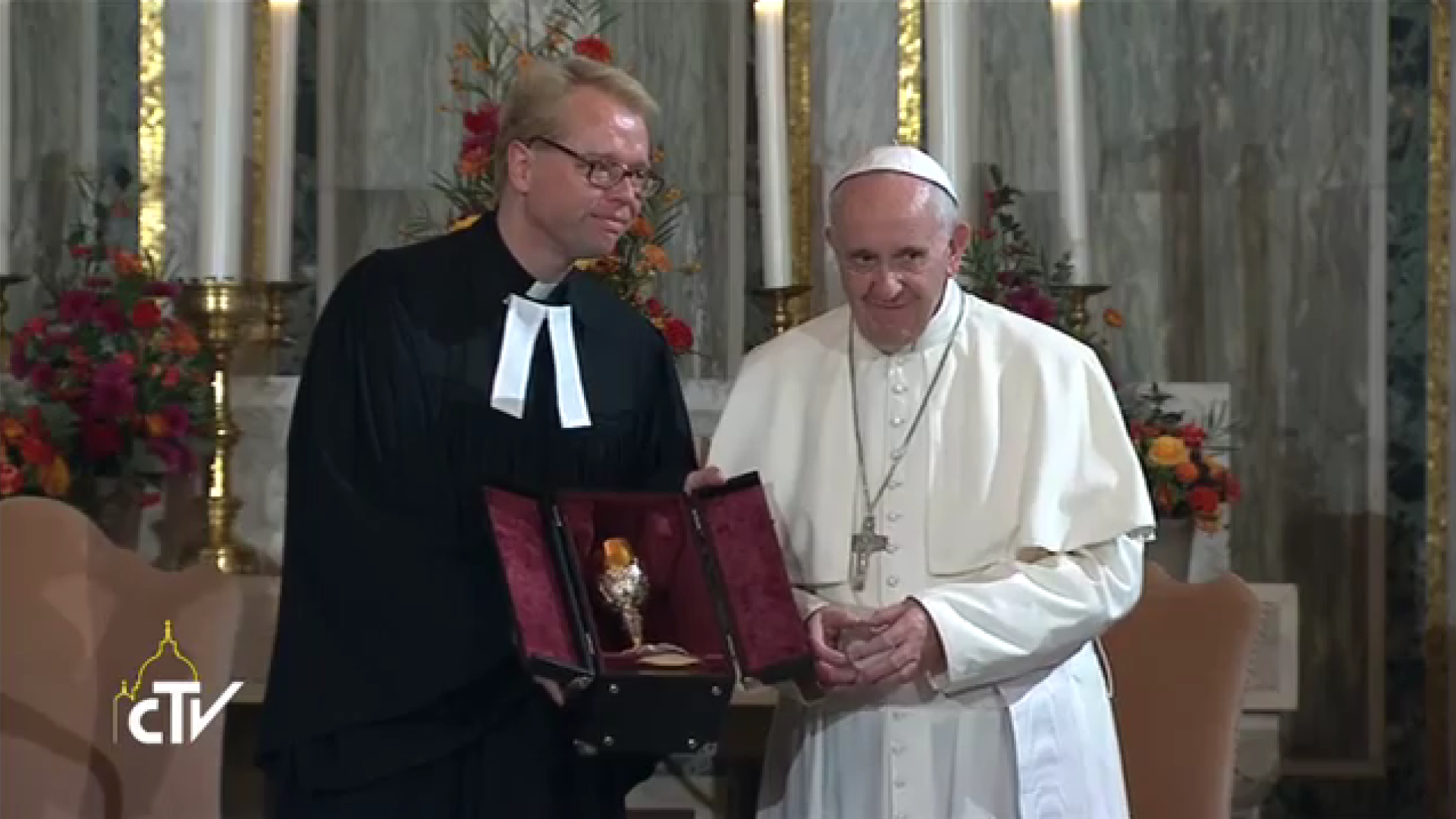
On Sunday November 15, 2015, Pope Francis visited the Lutheran Evangelical Church of Rome where he took part in a Q&A session. At the end of the visit, Francis offered a chalice to the Lutherans.
Here are some extracts of the Holy Father's recent visit to Rome’s Lutheran community. Pope Francis said that Catholics and Lutherans should seek forgiveness for past persecutions. At the end of a joint prayer service, he said: “Just think of the persecutions, among we who have the same baptism. Think of all the people who were burned alive… We have to ask each other forgiveness for this, for the scandal of division.”
The pope took questions from the congregation. In particular, one Lutheran woman married to a Catholic Italian man spoke. She expressed her pain in not being able to receive Communion: “The hurt we’ve felt together due to a difference of faith” and asked the pope about their possibility “to finally participate together in Communion”.
In front of three cardinals (Walter Kasper, Kurt Koch, and Agostino Vallini) and the crowd of mostly German-Swiss attendees, the pope left the answer to the woman’s conscience.
The pope started with a joke: “The question on sharing the Lord’s Supper isn’t easy for me to respond to, above all in front of a theologian like Cardinal Kasper—I’m scared!"
Then he went on to explain why she could not, giving the doctrinal foundation of this prohibition. On the contrary, however, he insisted on a different practical reality, which he claimed to be the same:
It’s true that in a certain sense, to share means that there aren’t differences between us, that we have the same doctrine—underscoring that word, a difficult word to understand. But I ask myself: but don’t we have the same Baptism? If we have the same Baptism, shouldn’t we be walking together?
When you feel yourself a sinner—and I’m much more of a sinner—when your husband feels he’s sinned, you go forward to the Lord and ask forgiveness; your husband does the same and also goes to the priest and asks absolution… When you teach your kids who is Jesus? Why did Jesus come? What did Jesus do for us?, you’re doing the same thing, whether in the Lutheran language or the Catholic one, but it’s the same.
The question… The supper? There are questions that only if one is sincere with oneself and the little theological light one has, must be responded to on one’s own. See for yourself…
It’s a problem that each must answer [for themselves]…
A pastor-friend once told me that: 'We believe that the Lord is present there, he is present'—you believe that the Lord is present. And what's the difference? There are explanations, interpretations, but life is bigger than explanations and interpretations. Always refer back to your baptism – one faith, one baptism, one Lord…
I would never dare to give permission to do this, because it’s not my own competence. One baptism, one Lord, one faith. Talk to the Lord and then go forward. [Pauses] And I wouldn't dare—I don’t dare say anything more.”
The Lutheran movement, of course, was born of the rebellion by Martin Luther, who nailed his 95 theses criticizing Catholic doctrine to the door of a church in Wittenberg, Germany in 1517. Pope Leo X, in 1520, condemned Luther’s ideas as “heretical, scandalous, false, offensive to pious ears and seductive of simple minds, and against Catholic truth.”
The “reformation” that followed Luther’s revolution split the Church and sparked wars between Protestants and Catholics.
Theological dialogue between Rome and Lutherans began in the late 1960s after the Second Vatican Council. In October 1999 the “Joint Declaration On the Doctrine of Justification” was signed by Australian Cardinal Cassidy acting as President of the Vatican’s Pontifical Council for Promoting Christian Unity. The document wrongly asserted that Catholics and Lutherans had now found a common agreement on the doctrinal details involved in conversion and salvation.
As the 500th anniversary of the German Reformation is approaching, the USCCB and Evangelical Lutheran Church of America recently issued a joint statement (Declaration On The Way), to prepare for this event.
Translation: Rocco Palmo in Whispers in the Loggia.
